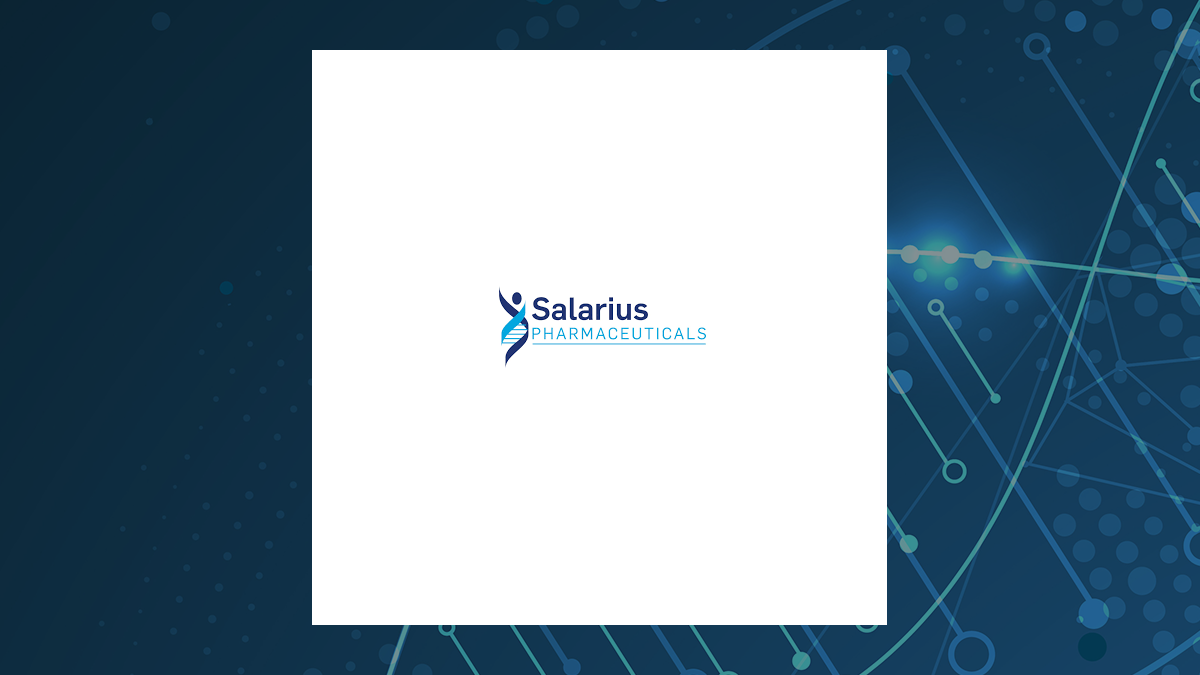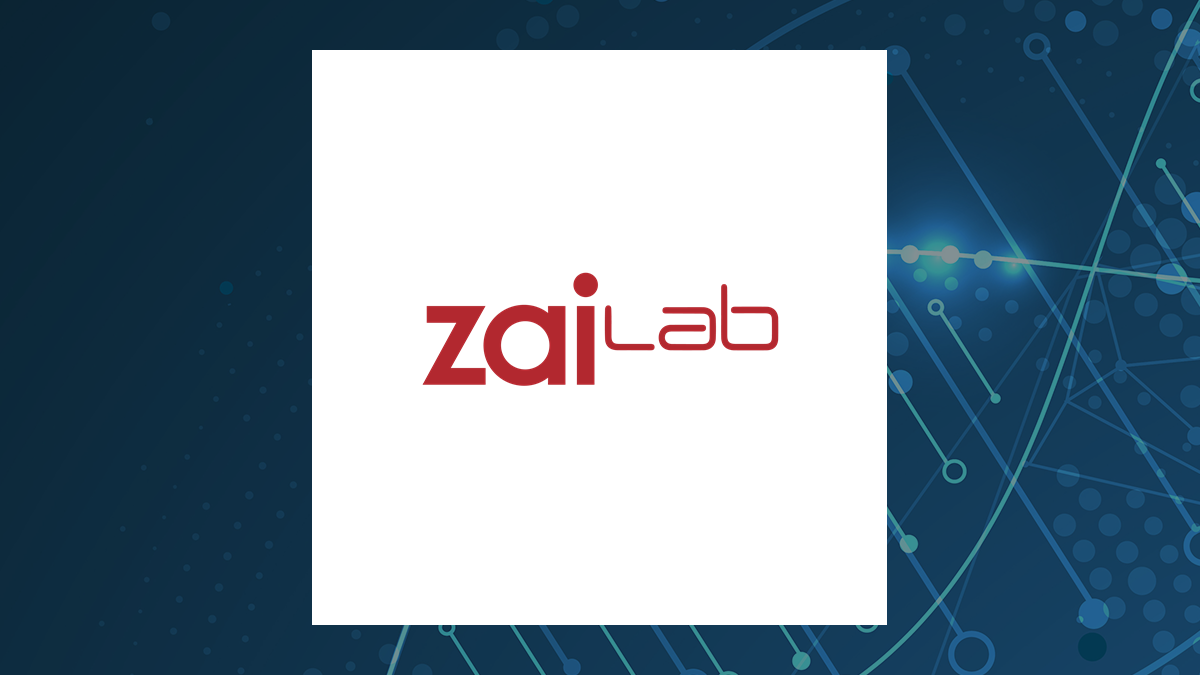Salarius Pharmaceuticals (NASDAQ:SLRX – Get Free Report) and Zai Lab (NASDAQ:ZLAB – Get Free Report) are both medical companies, but which is the better business? We will compare the two businesses based on the strength of their risk, analyst recommendations, earnings, dividends, profitability, institutional ownership and valuation.
Risk & Volatility
Salarius Pharmaceuticals has a beta of 0.42, indicating that its stock price is 58% less volatile than the S&P 500. Comparatively, Zai Lab has a beta of 1.04, indicating that its stock price is 4% more volatile than the S&P 500.
Valuation and Earnings
This table compares Salarius Pharmaceuticals and Zai Lab”s gross revenue, earnings per share (EPS) and valuation.
| Gross Revenue | Price/Sales Ratio | Net Income | Earnings Per Share | Price/Earnings Ratio | |
| Salarius Pharmaceuticals | N/A | N/A | -$12.54 million | ($4.82) | -0.17 |
| Zai Lab | $418.33 million | 8.70 | -$334.62 million | ($2.49) | -13.25 |
Salarius Pharmaceuticals has higher earnings, but lower revenue than Zai Lab. Zai Lab is trading at a lower price-to-earnings ratio than Salarius Pharmaceuticals, indicating that it is currently the more affordable of the two stocks.
Analyst Ratings
This is a summary of recent recommendations and price targets for Salarius Pharmaceuticals and Zai Lab, as provided by MarketBeat.com.
| Sell Ratings | Hold Ratings | Buy Ratings | Strong Buy Ratings | Rating Score | |
| Salarius Pharmaceuticals | 0 | 0 | 0 | 0 | 0.00 |
| Zai Lab | 0 | 1 | 3 | 0 | 2.75 |
Zai Lab has a consensus price target of $47.37, indicating a potential upside of 43.58%. Given Zai Lab’s stronger consensus rating and higher possible upside, analysts plainly believe Zai Lab is more favorable than Salarius Pharmaceuticals.
Insider and Institutional Ownership
11.9% of Salarius Pharmaceuticals shares are owned by institutional investors. Comparatively, 41.7% of Zai Lab shares are owned by institutional investors. 1.4% of Salarius Pharmaceuticals shares are owned by company insiders. Comparatively, 5.0% of Zai Lab shares are owned by company insiders. Strong institutional ownership is an indication that hedge funds, large money managers and endowments believe a company is poised for long-term growth.
Profitability
This table compares Salarius Pharmaceuticals and Zai Lab’s net margins, return on equity and return on assets.
| Net Margins | Return on Equity | Return on Assets | |
| Salarius Pharmaceuticals | N/A | -140.28% | -105.76% |
| Zai Lab | -76.14% | -36.97% | -27.10% |
Summary
Zai Lab beats Salarius Pharmaceuticals on 10 of the 13 factors compared between the two stocks.
About Salarius Pharmaceuticals
 Salarius Pharmaceuticals, Inc., a clinical-stage biotechnology company, focuses on developing treatments for cancers with unmet medical need. Its lead candidate is Seclidemstat (SP-2577), a small molecular inhibitor which is in Phase I/II clinical trial for the treatment of advanced solid tumors, as well as Ewing sarcoma. The company also offers SP-3164, a small molecular protein degrader for the treatment of hematological and solid tumors. It has a strategic partnership with The University of Utah Research Foundation for the exclusive license with respect to patent rights protecting SP-2577 and related compounds and Cancer Prevention and Research Institute of Texas for product development activities. The company is headquartered in Houston, Texas.
Salarius Pharmaceuticals, Inc., a clinical-stage biotechnology company, focuses on developing treatments for cancers with unmet medical need. Its lead candidate is Seclidemstat (SP-2577), a small molecular inhibitor which is in Phase I/II clinical trial for the treatment of advanced solid tumors, as well as Ewing sarcoma. The company also offers SP-3164, a small molecular protein degrader for the treatment of hematological and solid tumors. It has a strategic partnership with The University of Utah Research Foundation for the exclusive license with respect to patent rights protecting SP-2577 and related compounds and Cancer Prevention and Research Institute of Texas for product development activities. The company is headquartered in Houston, Texas.
About Zai Lab
 Zai Lab Limited develops and commercializes therapies to treat oncology, autoimmune disorders, infectious diseases, and neuroscience. Its commercial products include Zejula, an orally administered poly polymerase 1/2 inhibitor; Optune, a cancer therapy that uses electric fields tuned to specific frequencies to kill tumor cells; NUZYRA for acute bacterial skin and skin structure infections, and community acquired bacterial pneumonia; Qinlock to treat gastrointestinal stromal tumors, and VYVGART, a human IgG1 antibody fragment for myesthenia gravis. The company also develops Tumor Treating Fields, a portable device for delivery of electric fields; Repotrectinib, a tyrosine kinase inhibitor (TKI) to target ROS1 and TRK A/B/C in TKI-naïve- or -pretreated cancer patients; Tisotumab vedotin, an antibody drug conjugate; Adagrasib for treating KRAS-G12C-mutated NSCLC, colorectal cancer, and pancreatic cancer; and Bemarituzumab to treat gastric and gastroesophageal junction cancer patients. In addition, it develops Sulbactam/durlobactam, a combination of a beta-lactam antibiotic and a beta-lactamase inhibitor for the treatment of serious infections caused by Acinetobacter; KarXT for the treatment of psychiatric and neurological conditions. It has license and collaboration agreement with Tesaro, Inc. to develop, manufacture, and commercialize niraparib; NovoCure to develop and commercialize Tumor Treating Fields; Deciphera to develop and commercialize ripretinib; Paratek Bermuda Ltd. to develop, manufacture, and commercialize omadacycline; argenx, to develop and commercialize efgartigimod; BMS to develop and commercialize tisotumab vedotin and repotrectinib; Mirati to research, develop, manufacture, and commercialize adagrasib; Amgen to develop and commercialize bemarituzumab; and Innoviva to develop and commercialize Sulbactam-Durlobactam; Karuna to develop and commercialize KarXT. The company was incorporated in 2013 and is headquartered in Shanghai, China.
Zai Lab Limited develops and commercializes therapies to treat oncology, autoimmune disorders, infectious diseases, and neuroscience. Its commercial products include Zejula, an orally administered poly polymerase 1/2 inhibitor; Optune, a cancer therapy that uses electric fields tuned to specific frequencies to kill tumor cells; NUZYRA for acute bacterial skin and skin structure infections, and community acquired bacterial pneumonia; Qinlock to treat gastrointestinal stromal tumors, and VYVGART, a human IgG1 antibody fragment for myesthenia gravis. The company also develops Tumor Treating Fields, a portable device for delivery of electric fields; Repotrectinib, a tyrosine kinase inhibitor (TKI) to target ROS1 and TRK A/B/C in TKI-naïve- or -pretreated cancer patients; Tisotumab vedotin, an antibody drug conjugate; Adagrasib for treating KRAS-G12C-mutated NSCLC, colorectal cancer, and pancreatic cancer; and Bemarituzumab to treat gastric and gastroesophageal junction cancer patients. In addition, it develops Sulbactam/durlobactam, a combination of a beta-lactam antibiotic and a beta-lactamase inhibitor for the treatment of serious infections caused by Acinetobacter; KarXT for the treatment of psychiatric and neurological conditions. It has license and collaboration agreement with Tesaro, Inc. to develop, manufacture, and commercialize niraparib; NovoCure to develop and commercialize Tumor Treating Fields; Deciphera to develop and commercialize ripretinib; Paratek Bermuda Ltd. to develop, manufacture, and commercialize omadacycline; argenx, to develop and commercialize efgartigimod; BMS to develop and commercialize tisotumab vedotin and repotrectinib; Mirati to research, develop, manufacture, and commercialize adagrasib; Amgen to develop and commercialize bemarituzumab; and Innoviva to develop and commercialize Sulbactam-Durlobactam; Karuna to develop and commercialize KarXT. The company was incorporated in 2013 and is headquartered in Shanghai, China.
Receive News & Ratings for Salarius Pharmaceuticals Daily - Enter your email address below to receive a concise daily summary of the latest news and analysts' ratings for Salarius Pharmaceuticals and related companies with MarketBeat.com's FREE daily email newsletter.
